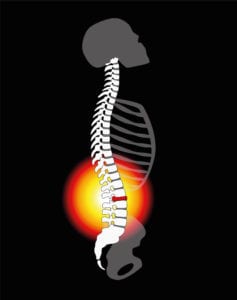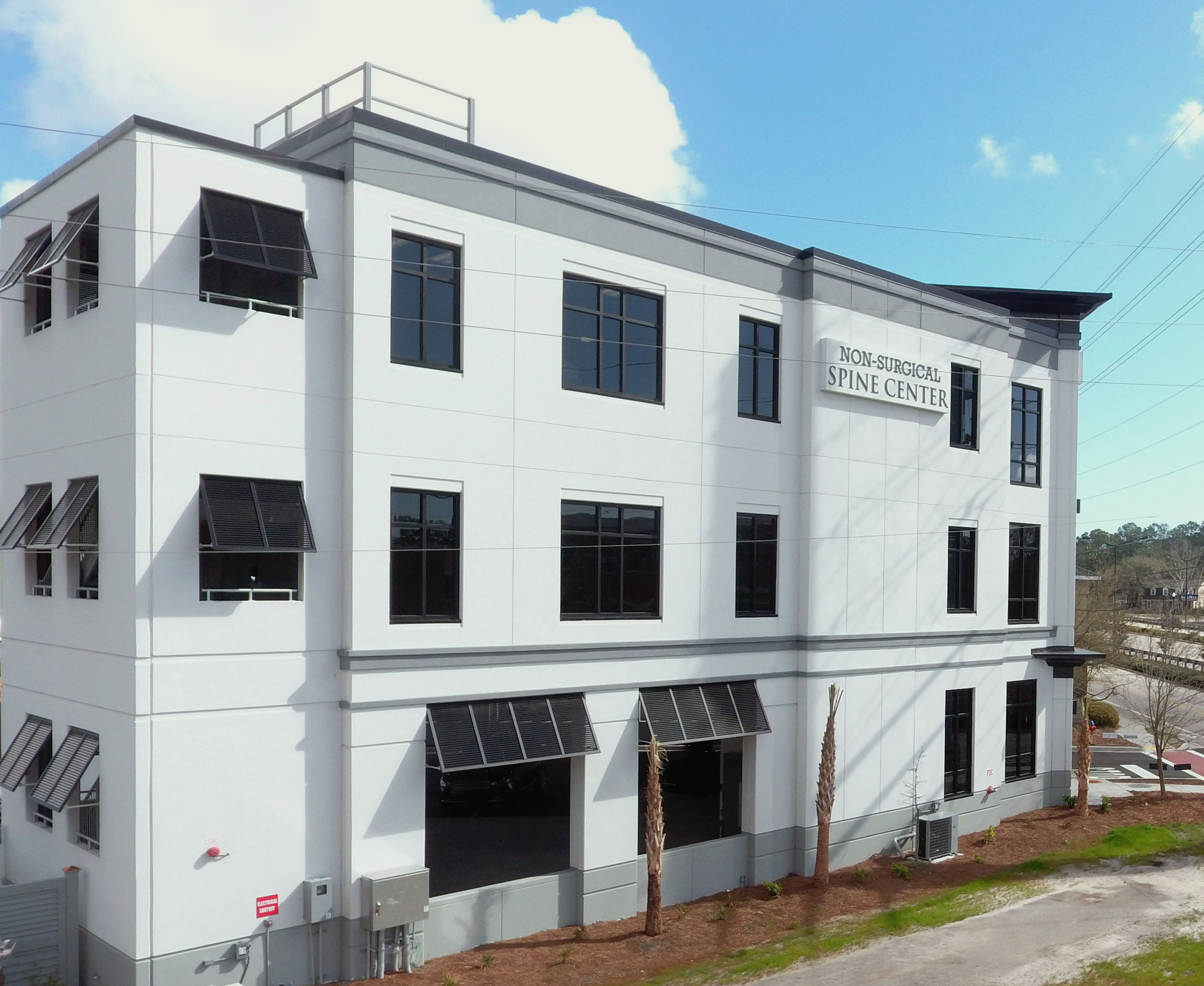Herniated Disc
Herniated Disc
Jelly donuts are a great comparison to the discs that make up your spine. With age or injury, these discs can degenerate. Sometimes the center of the disc can herniate through the outer ring. When this happens, it is called a disc herniation or a “slipped disc.”
A herniated disc can be quite painful and debilitating in regard to your everyday life. The pain can increase the complexity of previously simple motions. The area between the fourth and fifth lumbar vertebrae absorbs most of the weight of the upper body, making it the most commonplace for herniated disks to occur. If this happens, we can help.

HERNIATED DISC CAUSES
Some causes of disc herniation include aging and general wear and tear. Also, injury, repetitive motions, or sudden stresses on your lower back can lead to a herniated disk.
To prevent herniated or ruptured discs, you should try to avoid motions that use the muscles in your back over and over. It is also important to be careful when playing sports or engaging in other physically demanding activities. Avoiding repetitive motions and high-risk athletics can help avoid a herniated disk in the long run.
HERNIATED DISC SYMPTOMS
Depending on where the disc is herniated, you may experience different symptoms. Symptoms also depend on how irritated the nerve tissue is. Symptoms of a herniated disc often include numbness in the neck, back, arm, or leg. If the herniation is large enough, another issue can arise. The disc tissue may also cause shooting pain on one side of the body. This is especially possible if it is pressed against the spinal nerves that exit the spine where the disc is herniated.
HERNIATED DISC TREATMENT
The first step to treating a disc herniation would be an MRI or a CT. These tests will help Dr. Alexander visualize the herniation. A deeper look into the hernia and surrounding area is important for proper treatment.
Once he has a good idea of the extent of the damage regarding the disc herniation, Dr. Alexander will weigh several different types of non-surgical treatments. These include selective nerve root blocks, epidurals, intradiscal steroid injections, and physical therapy. The goal is to treat your herniated disc in the most appropriate way for your specific situation.

NON-SURGICAL SPINE CENTER
Non-Surgical Spine Center provides patients and clinicians a non-surgical alternative when it comes to the treatment of spine and musculoskeletal pain. We utilize the most current and innovative diagnostic and therapeutic techniques. Also, our group offers patients a multitude of options for improving daily function and quality of life. These options also focus on significantly decreasing levels of pain. If you have a herniated disc, feel free to contact our office at 843-856-9669 or our contact page.
